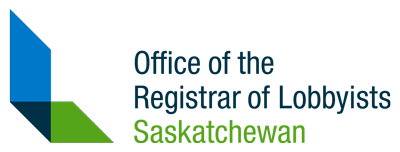Examples of What Is and Isn’t Lobbying Activity
The purpose of The Lobbyists Act is not to impede anyone’s right to communicate with their MLA, a Minister or any public office holder. The purpose is to ensure that those who are paid to attempt to influence a decision are open about their activities so everyone has the opportunity to know who is attempting to influence whom and for what intended outcome.
Some examples of lobbying could include:
- A coalition of businesses hires someone to present their suggestion that an amendment of The Saskatchewan Employment Act should be made to allow for a variation of the definition of “week” with regards to payment of overtime.
- A government relations person buys coffee for a Deputy Minister and talks about regulation changes his company would like.
- A paid advocate for an animal rights group calls for changes to the Wildlife Act and asks the public to get involved and talk to their respective MLA about the topic.
- A seed fertilizer company requests a meeting to inform elected officials and staff about the benefits to consumers, farmers and the environment deriving from plant sciences innovation.
- A representative of a union discusses specific union issues with a public office holder at a social function.
Not all meetings and communications are considered lobbying, nor is everyone who speaks to a public office holder about a specific topic considered a lobbyist. Volunteers, members of certain charitable non-profit boards and government officials speaking to each other in their official capacity are not considered lobbyists.
Examples of what is NOT considered lobbying:
- A presentation is made within the framework of a judicial or adjudicative proceeding such as an employment tribunal.
- Representation is made within the framework of a parliamentary commission or public forum where the proceedings are a matter of public record, such as during a town hall meeting or public consultation session.
- You have been asked by a public office holder to speak on a specific topic.
- You are talking to your MLA about something that impacts the constituency, not you directly.
